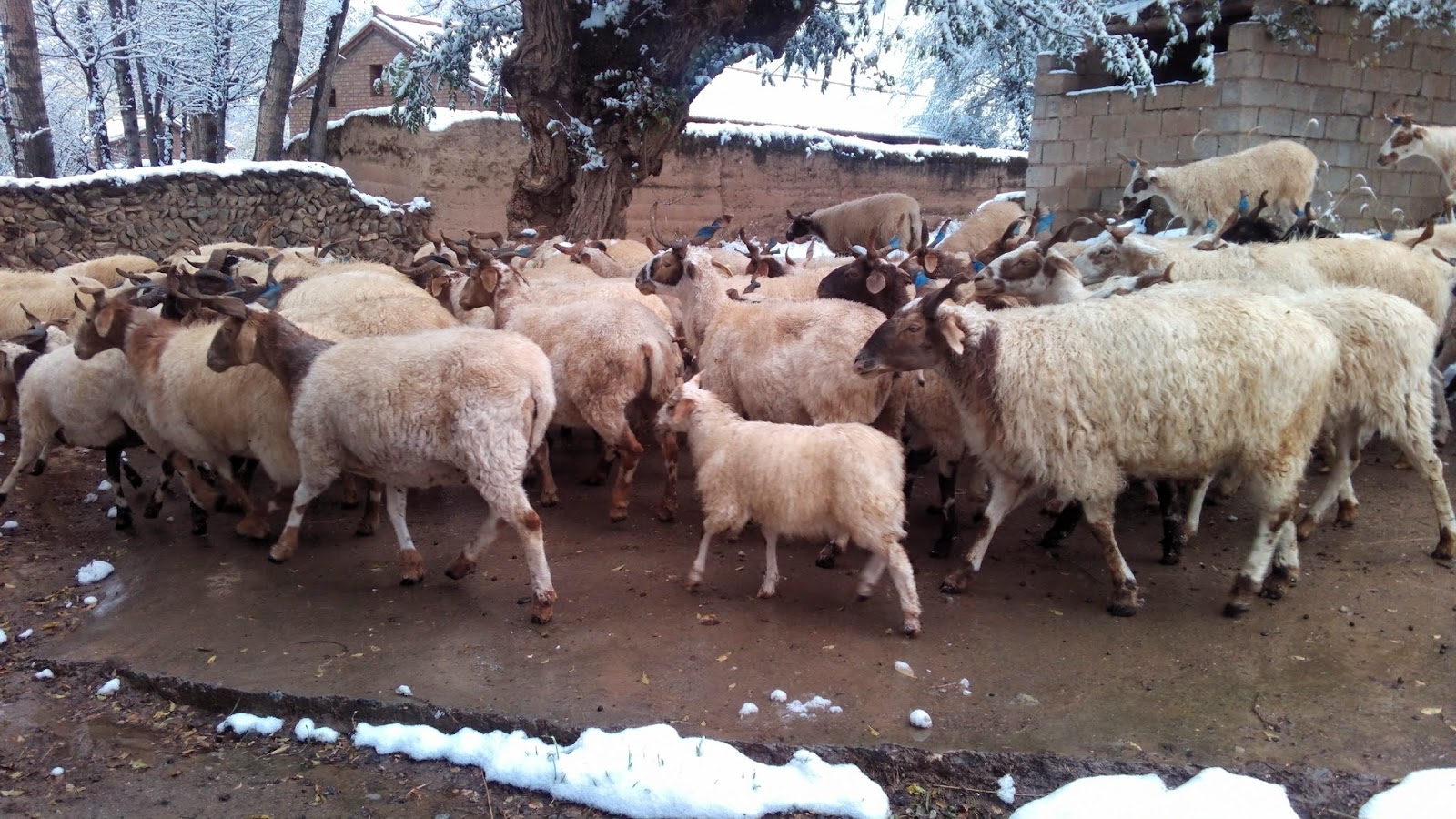 |
| Yaks on the Tibetan Plateau |
Only minutes after landing in Xining, the capital and only big city of Qinghai province, I could already tell that I was in a different world. Unlike Beijing, the sun is bright and the sky is refreshingly clear from pollution. A developing city, it is made up of tall and uninspiring high-rises. Although lacking the polished feel of cities like San Francisco and Hong Kong, the surrounding mountains reflect the beautiful nature that makes up most of the province. With lakes, forests and national parks, Qinghai province is almost like a large nature reserve.
 |
| Roof of a mosque |
Located in the northeastern part of China, Qinghai has a large Tibetan population. Tibetan buddhist monasteries dot the countryside and the big city, and Tibetan tea houses and restaurants are normal sights. There is also a large Chinese Muslim population. So large in fact that there is a Muslim quarter with magnificent mosques. For dinner the first night, my group and I ate at a fancy family-style Muslim restaurant, where we gorged on pancakes, a soy sauce steamed egg dish that looked like flan, a sticky rice dessert, fried pumpkin, and many delicious shu cai (vegetable) dishes.
The next day our guide took us to Kumbum Monastery. Only a 45-minute drive from our hotel, we spent most of the day wandering around and stopping in temple after temple. Inside this working monastery, monks in burgundy robes scurried down tiny corridors and the smell of incense lingered around each corner.
 |
| Prayer wheels |
 Arriving at the first temple, I stepped over* the threshold beam, a tall step directly under the doorway, and entered what seemed like another world. A monk sat in a corner quietly chanting in Tibetan while steadily beating a drum. The aroma of incense lightly drifted around the courtyard and a giant golden Buddha clad in colorful scarves looked down at me. What really stood out though, was the vividly painted scene on the wall behind the monk depicting angry-looking nature spirits and crazy-looking horses. Albeit this frightening depiction, the painting represents the respectful relationship between Tibetans and nature. Afraid of angering the many spirits, they traditionally treat animals and the natural world with love and respect---- similar to the Native Americans. I had so much fun learning about Buddhism and experiencing something completely out of the ordinary. This made for a great first experience in Qinghai and I cannot wait for the next excursion!
Arriving at the first temple, I stepped over* the threshold beam, a tall step directly under the doorway, and entered what seemed like another world. A monk sat in a corner quietly chanting in Tibetan while steadily beating a drum. The aroma of incense lightly drifted around the courtyard and a giant golden Buddha clad in colorful scarves looked down at me. What really stood out though, was the vividly painted scene on the wall behind the monk depicting angry-looking nature spirits and crazy-looking horses. Albeit this frightening depiction, the painting represents the respectful relationship between Tibetans and nature. Afraid of angering the many spirits, they traditionally treat animals and the natural world with love and respect---- similar to the Native Americans. I had so much fun learning about Buddhism and experiencing something completely out of the ordinary. This made for a great first experience in Qinghai and I cannot wait for the next excursion!
*The height of the step represents the social status of the family (or in this case the monks) living in the building. You are never supposed to step directly on the step because it signifies a lowering of your status. For a reason that I am not aware of, girls usually step over the step with their right leg.
 I went to 798 on Saturday---- the air was so polluted I had to wear a face mask. Although the air quality was a bummer, I had a blast exploring 798. The streets were so empty that I had no problem getting into any of the galleries. I saw everything from eerily and beautifully painted trees to a painting with Angelina Jolie's lips.
I went to 798 on Saturday---- the air was so polluted I had to wear a face mask. Although the air quality was a bummer, I had a blast exploring 798. The streets were so empty that I had no problem getting into any of the galleries. I saw everything from eerily and beautifully painted trees to a painting with Angelina Jolie's lips.

















